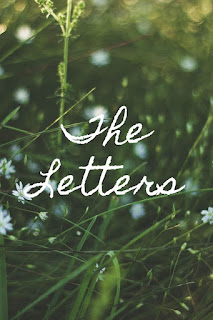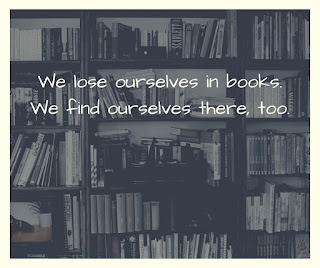The Letters
 Once upon a time I wrote a novella. I fell in love with this, and I always thought that it was some kind of magnum opus...my great work.
Once upon a time I wrote a novella. I fell in love with this, and I always thought that it was some kind of magnum opus...my great work.But I put it out there in the world and no one, save a couple of m
y closest friends, took a look at it.
Is this a sign that my judgment is a bit off?
At least in regards to my own writing.
To tell you the truth, I loved, adored, treasured that little story. If I could have held the story in my hands I would have done so, and maybe even put the cutest little ribbon around its neck and patted the top of its wee head.
Here's a bit of it:
He would hold it first, gently, between his fingers, gaze at his name written in a hand as fine as calligraphy. Harper Mason scrawled in elegant black ink against an eggshell white background. Whether the pen was engraved and gold plated or the ninety-nine cent variety from the drug store, he could never guess. To him, there never was a finer specimen of perfect penmanship to behold.
It was too early to expect an answer to his last letter, but his feet were eager to trek down the dusty gravel road into town to check anyway.
The gentle letter writer referred to him by his given name, Harper. To everyone else, he was simply, Hap.
Hap Mason. Retired newspaper editor. Living on the edge of town in the same house he was born in.
He swung the coarse barn coat over his shoulders, the gray one he kept for night chores and slipped into his heavy rain boots. Hap pulled hard to shut the back door, swollen from a recent rainstorm and stepped off the square concrete porch and into the glistening grass. A soft wind blew over his head. He reached up, feeling only skin, he turned and stepped back up on the small porch. He had to give the door a little shoulder to persuade it open. His favorite hat, a faded newsboy in gray plaid, sat at the top of the hat tree that stood guard by the back door.
Hap wondered if the crunch of his heavy boots on the dirt road mattered much to the turtle doves chattering in the trees. Would the birds feel as he did when the squirrels chattered outside the kitchen window every morning, just as he sat down to read the morning paper with his first cup of steaming coffee? Some mornings he felt like shouting at the noisy troublemakers to be quiet, but he turned to the sports section instead. Hap was not a sports fan, and he thought the trick would throw them off, letting them think he was reading the part of the paper that really interested him. Some mornings he was sure the ruse worked; by the time he turned back to the front page, the squirrels skittered across the yard to their favorite oak tree.
The birdsong continued, uninterrupted, and he figured they must not mind. He would pose the question in his next letter, as he did with most of the questions that popped into his mind. His heart beat a little fast just then; he could be penning a return letter after his soup and crackers that very night. That was, of course, if his brief trip to town proved fruitful. Seldom did he write two letters in a row without receiving one. He hoped there was a letter waiting for him. He told himself it was okay if there was not. In a normal week, he received one letter.
The ritual began Sunday after supper. Hap reached above the navy overcoat hanging in the front closet to the round hatbox left in the house by his mother thirty years ago. He cradled the box against his chest like a treasured keepsake not seen for a generation, though the box made an appearance once each week. Gingerly removing the lid he reached inside for the wooden pen case and set it on the table next to the writing tablet reserved only for letters to her. Replacing the lid, he set the hatbox to the side and turned his attention to the pen case. His fingers were never greedy; slowly he traced along the ridged back along to the front. With his index finger, he pried the case open to reveal a small black spear with a silver tip inside. True Writer in Obsidian black, his choice writing instrument, but only for letters to her. Had the pen been larger he was sure he could have seen his weathered face reflected in the black. Next, he reached for the tablet, opening the top sheet and smoothing the clean, off-white page with his hand. The paper was nothing ordinary, fit only for the letters. No shopping lists or telephone messages would be scrawled on the fine pages. As he moved his hand steadily over the leaves he felt the weight and texture of the fine paper. No, this pen and paper were reserved only for the letters.
He wrote for two hours or more, posted the letter Monday morning early and waited, imagining her response, until he walked to town on Thursday to find the answer. Some weeks, like this one, his patience grew thin by Wednesday afternoon and he set out on the short walk to town.
Only once had she failed to respond to a Sunday letter. Hap spent three anxious days praying that she had not met her death in a car wreck or an unfortunate lightning strike. How would he ever know what became of her? By the next Tuesday he had his answer. She had not written because her husband had fallen suddenly ill and died. Hap was remorseful that he had been impatient, and for the three months afterward her letters had come twice a week. He regretted her terrible loss but secretly reveled in the increase.



Comments
Post a Comment